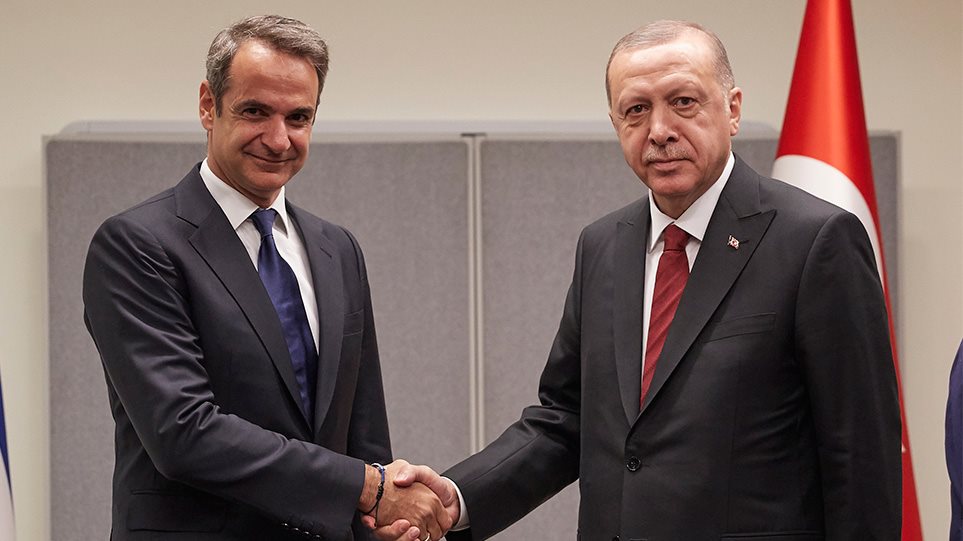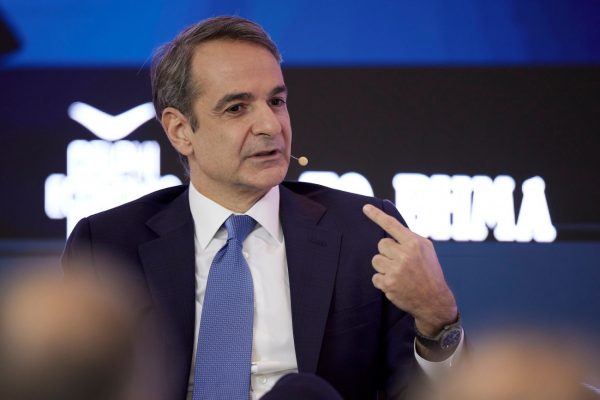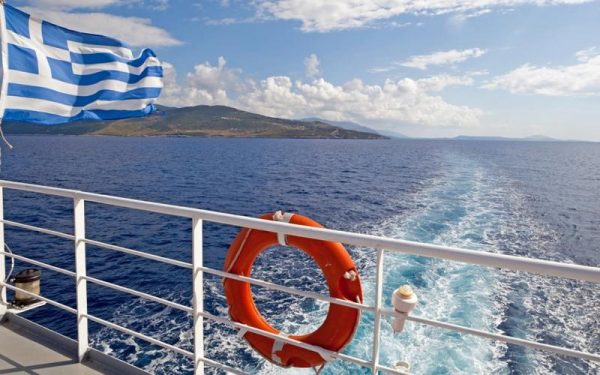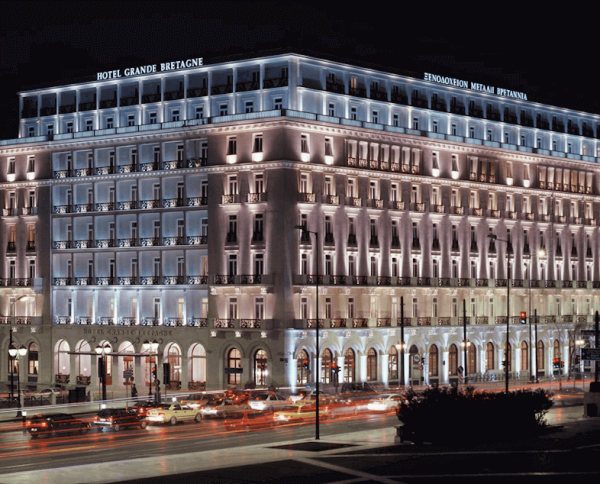
The meeting of Prime Minister K. Mitsotakis with the President of Turkey Recep Tayyip Erdogan in Vilnius, Lithuania has been confirmed. It will be the first face-to-face meeting between the two leaders since March 2022 and the famous “Mitsotakis no” that President Erdogan said. The current meeting will take place under completely different circumstances. The two leaders have just been re-elected with strong majorities, the climate between the two countries has improved significantly after the devastating earthquakes in Northern Turkey and the show of Greek solidarity.
At the same time, the immediate geopolitical environment has changed dramatically as a consequence of the war in Ukraine, Turkey’s efforts to close open fronts with a number of countries (Egypt, Israel, Syria, Gulf countries, Armenia, etc.) but also to normalize its relations with the USA and the European Union, but without abandoning its strategic vision for an autonomous role as a sui generis country of the West, a regional power. What is also important is that President Erdoğan, without abandoning his permanent positions and aspirations, proclaims the need for a new beginning with the aim of achieving cooperative, friendly Greek-Turkish relations. While K. Mitsotakis’ stated aim for a rapprochement with Turkey is also reflected in the composition of his government (with a particularly capable team at the Ministry of Foreign Affairs in the “Mitsotakis logic”). To change model?
Therefore, the meeting of the two leaders takes place at a good timing, at the beginning of the new political period of strong governments in the two countries.
That is, at the moment when certain difficult and perhaps unpopular decisions can be made. Prime Minister K. Mitsotakis is now politically dominant to make any decision he chooses (despite any far-right cries). Of course, foreign policy and Greek-Turkish affairs are not at the forefront of society’s interest, but for as long as they remain “dormant” and in a state of control. But if things go “wrong” for whatever reason, then the whole socio-political dynamic changes. Attention is therefore self-evident. What should therefore be the intended outcome of the Mitsotakis-Erdogan meeting beyond the self-evident significance of the meeting itself? Three things:
First, full restoration of communication channels between the two leaders and between the two countries at all levels, political, diplomatic, technocratic, bilateral, multilateral, etc.
Second, activation/intensification of low policy dialogues such as between gen. secretaries of the Ministry of Foreign Affairs, confidence building measures (CBM) and of course the dialogue on the positive agenda and cooperation on immigration issues.
Thirdly, as far as the Greek-Turkish “hot issues” are concerned, it is obvious that no substantial decision can be taken. However, the step-by-step process of approaching them (road map, exploratory contacts, special negotiating framework, contact scheme, etc.) can and must be agreed upon/opened while maintaining the moratorium on refraining from delinquent actions. The ultimate goal should remain to resolve the problems on the basis of international law/Hague referral and not, as a second best option, to reach a modus vivendi in “we agree to disagree” (non-solution as a solution).
The Greek side has some powerful negotiating weapons against Turkey, given the difficult economic situation in which the latter finds itself. Among other things, its position in the European Union, which it can and must utilize resourcefully and dynamically.
Professor P.K. Ioakeimidis is a former ambassador – adviser to the Ministry of Foreign Affairs, member of the advisory committee of ELIAMEP and Research Associate LSE. His new book “Greece: Horizon 2030. The challenges of Turkey and Europe” was released by Papazisis publications.
Latest News

DM Dendias: We talk With Turkey But We Always Bring Up Their Unacceptable Positions
Second and last day of closely watched conference, entitled 'Metapolitefsi 1974-2024: 50 Years of Greek Foreign Policy', also included appearances by PM Mitsotakis, Ex-PM Tsipras and PASOK leader Nikos Androulakis, among others

Rhodes Airport Tops Fraport Greece’s Regional Airports in 2024 Performance
According to Fraport's data, more than 35 million passengers (specifically 35.2 million) were handled by Fraport-managed airports during the 11 months.

European Central Bank Cuts Interest Rates by 25 Basis Points
It is the fourth cut of interest rates by Europe’s central bank, a move expected by the markets and financial analysts leading to the rate settling at 3%.

Airbnb: New Measures Add €600 in Extra Costs for Property Owners
Property managers face an immediate administrative fine of 5,000 euros if access to the inspected property is denied or any of the specified requirements are not met.

Economist: Greece Included in the Best Performing Economies in 2024
Meanwhile, Northern European countries disappoint, with sluggish performances from the United Kingdom and Germany.

EasyJet Expands Its Routes from Athens
The airline’s two new routes will be to London Luton and Alicante and they will commence in summer 2025.

Capital Link Forum Highlights Greece’s Economic Resurgence; Honors BoG Gov Stournaras
Capital Link Hellenic Leadership Award recipient, Bank of Greece Gov. Yannis Stournaras, an ex-FinMin, was lauded for his pivotal role during Greece’s economic recovery

Tourist Spending in Greece Up by 14%, Visa Card Analysis Shows
Greece’s capital Athens emerged as the most popular destination, recording a 17% increase in transactions with Visa cards, surpassing even the cosmopolitan island of Mykonos.

Inflation in Greece Unchanged at 2.4% in Nov. 2024
The general consumer price index (CPI) posted a 0.4% decrease in November compared to the previous month

2024 Christmas Holidays: Extended Shop Hours Schedule
The 2024 Christmas Holidays extended shop hours schedule commences on Thursday, December 12 and runs until the end of the year.

![Φυσικό αέριο: Δυναμικό come back του LNG στην Ελλάδα [γραφήματα]](https://www.ot.gr/wp-content/uploads/2023/01/OT_naturalgas-90x90.jpeg)












![Fraport: Πάνω από 35 εκατ. επιβάτες στα αεροδρόμια το 11μηνο – Πτώση στη Μύκονο [πίνακας]](https://www.ot.gr/wp-content/uploads/2022/06/fraport-90x90.jpg)


















![Φυσικό αέριο: Δυναμικό come back του LNG στην Ελλάδα [γραφήματα]](https://www.ot.gr/wp-content/uploads/2023/01/OT_naturalgas-600x474.jpeg)








 Αριθμός Πιστοποίησης Μ.Η.Τ.232433
Αριθμός Πιστοποίησης Μ.Η.Τ.232433